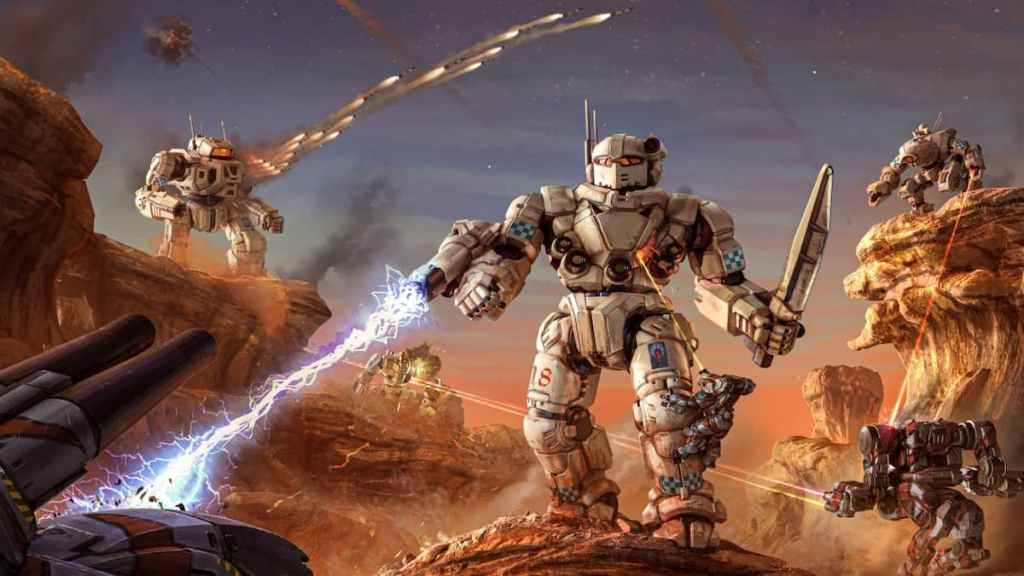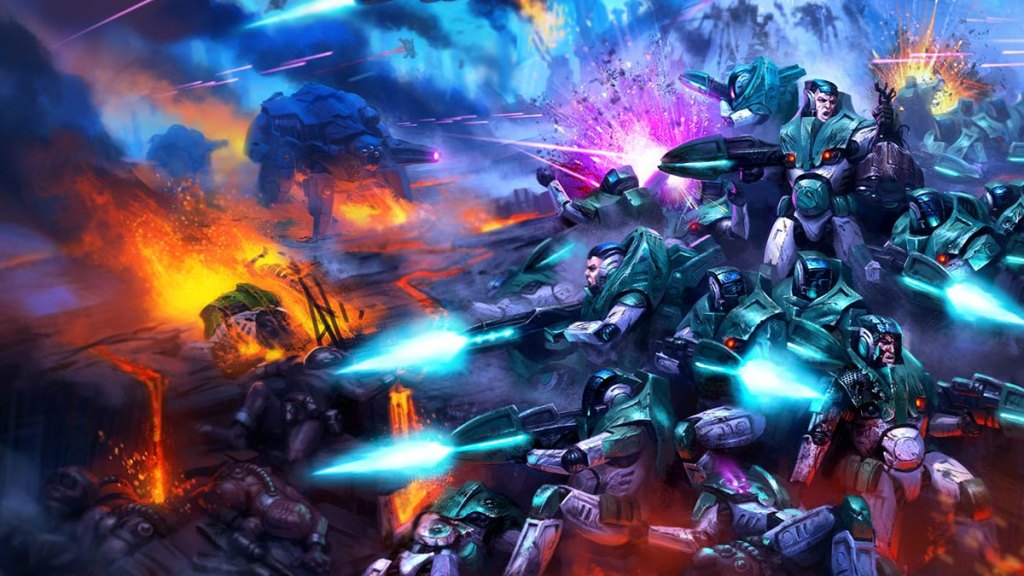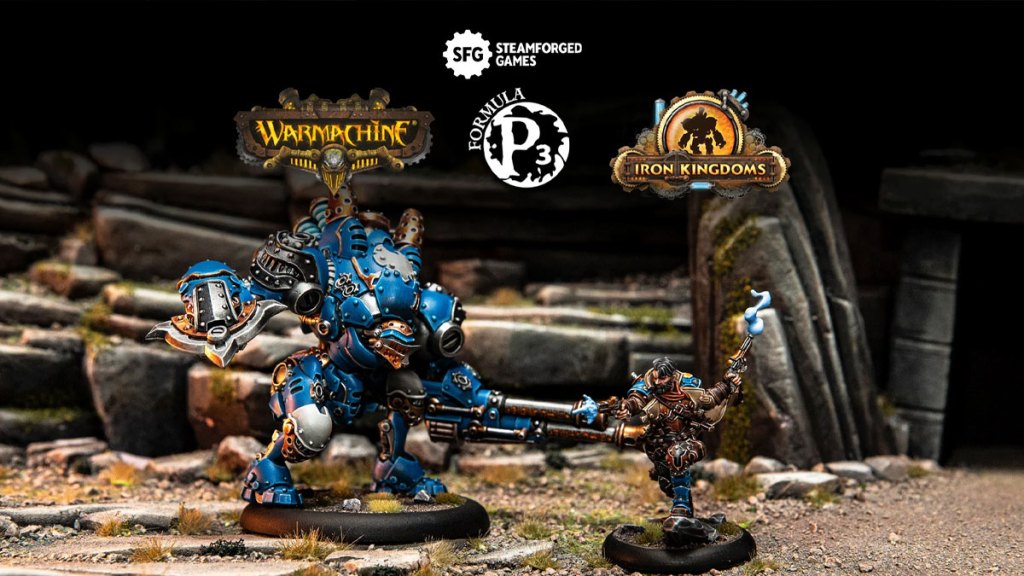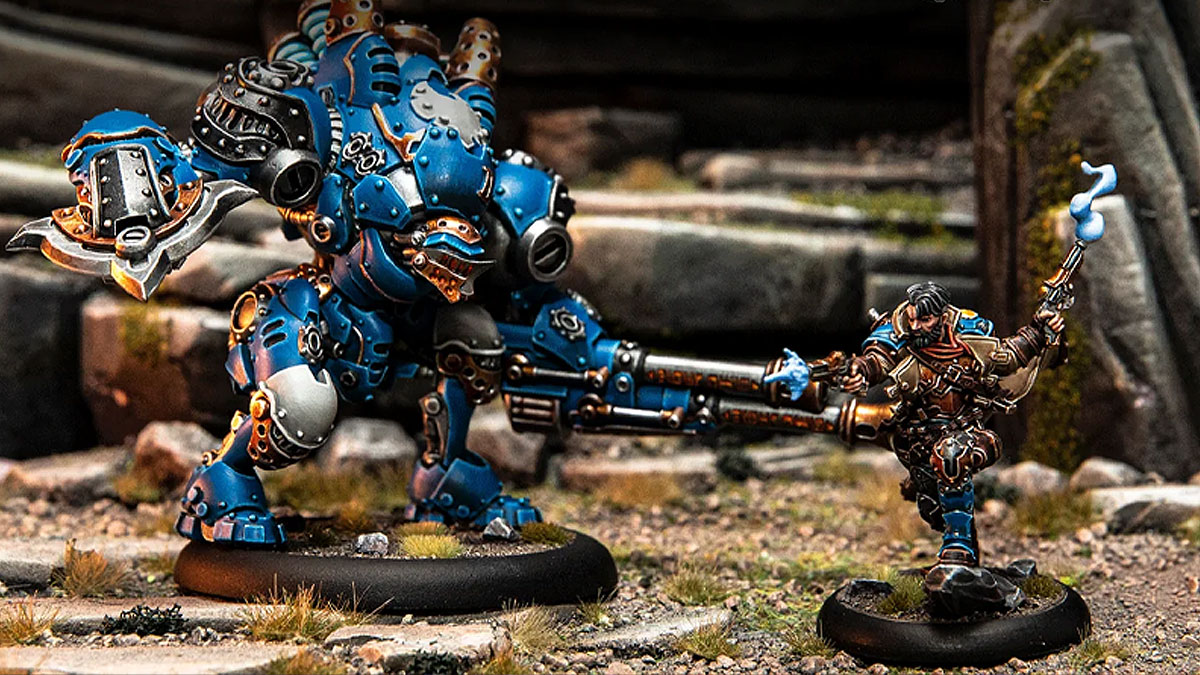Take it from someone who has played an assortment of wargames for nearly four decades: sometimes, a change is as good as a rest. If you have been pouring your heart and soul into Warhammer 40K for a while and just need something a bit different, there are options out there.
While Games Workshop certainly has a lot going for it, such as rather nice sculpts, very good lore, and a degree of mindshare that makes getting games extremely easy, that’s no reason to ignore the rest of the offerings on the market from all manner of companies. Now, this list will concern itself with games that are set in science-fiction settings and are army-level. I’m assuming you want to play something like 40K here, not something dramatically different.
Great alternatives to Warhammer 40K
Grimdark Future by OnePageRules

OnePageRules is something of a cheat entry, as they have an alternative for almost everything, but this really is the very best thing to play if you are looking for something new to do with your Warhammer 40K army. A simple set of rules won’t take long to learn, and you’ll be able to use pretty much every model you already own because that is how the system was designed. Over the years, OPR products have slowly been turning into viable standalone products rather than just a “this is almost 40K, but free” alternative. This is great, as they are a talented team that deserves to grow beyond that initial concept.
Have you always wanted to use a custom Space Skaven army to smash up some silly Chaos Space Marines? You can just use Mantic’s Veer-myn range of minis for a Ratmen Clans army while your CSM become Havoc Brothers. Fans of the magic of 3D printing can buy all sorts of files for the game’s many factions, and those same factions have been designed to cover just about every popular motif across the biggest games in the genre. They also have an extremely high-value Patreon, where you get oodles of free files each month.
The best thing about Grimdark Future is that the rules really are fun. Army balance is pretty on point, and there is a certain reward for playing in a sandbox with less structure and lore around it, in that you can simply make it all up as you go. For an average game of 40-50 models made up of squads, vehicles, and characters, you are looking at about an hour and a half once you are familiar with the rules.
BattleTech by Catalyst Game Labs

BattleTech’s Alpha Strike made it onto my list of best skirmish games to play, but this time around, we are talking about the standard rules. Catalyst Game Labs have done a pretty good job of bringing this beast back to good condition in recent years, although folks outside of America should be warned that distribution can be a little spotty.
The joy of BattleTech is in the details. While the model count might be low, with a classic match being two players and four mechs each, the deep and detailed ruleset means you are still looking at maybe two hours to wrap a game, and that is if you are quite familiar with it. Now, there are plenty of ways to make that shorter or longer, depending on your preference. I’ve seen people play games that took entire weekends to complete, with multiple players, multiple boards, and troop migration from one table to the next.
What seems to be the sticking point for many people is the models, which have quite dated designs and might not be your cup of tea. That just means you are wrong, but don’t worry about it too much.
Firefight by Mantic Games

I’ve got a few reasons why Mantic is a better company than Games Workshop, and Firefight is one of them. Cheaper overall, better rules (sorry, 10th Edition 40K, you are just not for me), well supported, and similar enough to be inviting while different enough to be challenging.
I feel like Mantic gets unfairly saddled with a “poor man’s GW” title, but Kings of War has been the best rank and flank game on the market for years, and Firefight is a fantastic game on its own merit. Starter sets cost about $140 with everything you need for two forces and all the rules to play. There are also two of them available, in case you don’t like one of the factions in one of the boxes. Most armies have a starter set for about $100, which would maybe get you two squads in other systems. You can even get the rules for free by signing up for their companion app, and those app-based rules get updated whenever new changes are made.
Star Wars: Legion by Atomic Mass Games

Don’t tell anyone, but Star Wars: Legion is actually pretty ace. This is the game to go to if you want to play out some of the large battles that you saw on screen as a child in those space opera movies that nobody ever really saw. It has the advantage of getting to use designs that have stood the test of time and are as visually striking today as they were when first released.
One of the reasons that I like Legion is that it scales pretty well. You can use smaller forces on a small table or bigger forces on a bigger table, and you won’t get some of the creaking that comes from under the hood of other rule sets. Games Workshop has a novel means of solving this lately with Combat Patrol in 40K and Spearhead in Age of Sigmar, but Star Wars: Legion’s designers managed to crack this one pretty well without the need for an additional ruleset being attached.
The game features a neat activation system that replicates some of the randomness of war without leaving one player completely open to getting RNGd into oblivion, and the gameplay manages to walk a fine line between being both strategically and tactically rewarding. I always break it down like this. Strategy is how opposing armies interact, and tactics are how opposing troops interact. If you are missing one of those elements, you have a bad tabletop game.
Beyond the Gates of Antares by Warlord/Skytrex

Beyond the Gates of Antares is an interesting fish because it never really got the attention it deserved, and now it might be too late. Gates is all about human and non-human factions punching the hell out of each other to control the titular gates that allow access to all manner of hidden worlds and cosmic wonder.
Rick Priestly, probably still best known for his work laying the very foundations and building an awful lot of the walls of Warhammer 40K back in the day, is the man behind the rules. You’d be tempted to think he would have just rolled off and designed his next iteration of that ruleset under a different banner, but Gates is a pretty interesting game on its own merit.
The bad news on this one is that the game is currently in an odd place. It is no longer under the banner of former publisher Warlord Games and is instead with sister company Skytrex, which is selling the miniatures. This means it now sits in a strange place where you can get the game, and it is being supported as a passion project by Rick Priestly and former official head of the project Tim Bancroft. It is seeing an interesting surge in support on a community level, and it’s worth exploring if you don’t mind buying into older, at-risk systems.
Warmachine by Steamforged Games/Privateer Press

Folks were wondering where Warmachine was on my list of best skirmish games. Well, here you go. Warmachine is the game that could have, nay, should have, taken the crown from Warhammer 40K, at least as a competitive game. Then publisher Privateer Press somewhat fumbled the bag, sadly, and over the years, the game has faded away. The launch of MKIV didn’t do much to win me back with $200, 3D printed starter sets, and it seems like that is the case for others, too.
Warmachine and related IPs were recently sold to Steamforged Games. Now, Steamforged is certainly not above some criticism around certain areas, but I originally wrote this entry BEFORE this news was announced, and it was a few paragraphs of doom and gloom. I feel much better now, as Steamforged has said nothing will be changing except the stuff I think is bad, such as the lack of availability of the product, lack of a proper two-player starter set, and lack of plastic models in the new sculpts.
So, while I still feel a lot of trepidation about Warmachine in general, I do wonder if this might be it. The moment. The glorious ascent to levels of yesteryear? We can live in hope.
Quick Hits
Victory Decision: Future Combat by A.D. Publishing
Flexibility is the name of the game for Victory Decision: Future Combat. This tome builds onto the Victory Condition system, adding specific rules for science fiction units. It covers quite a lot of variety and can work with anything from 6mm to 32mm models. It’s a fun system, but will definitely take some getting used to.
Dropzone Commander
Technically more Epic than Warhammer 40K, this 10mm scale city battles game by TT Combat is well worth a look. Miniature design in this game is just wonderful, with all factions being distinct and a lot of love going into each and every model.
Any old edition of Warhammer 40K
If, like me, you are just not jiving with 10th Edition, then feel free to break out any old edition of the game. I still play 2nd Edition a lot and will play 5th Edition when people give my arm a little twist. Old rules are, thankfully, not dead rules, we can always crack open those old books and play again.








